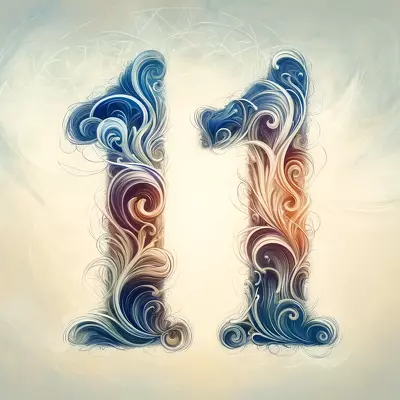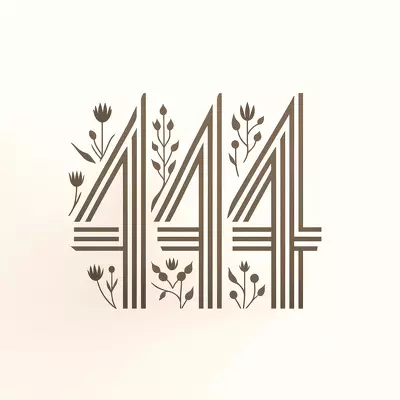Navigating the Cosmic Ledger: Understanding Karmic Debt 14 and Its Impact on Your Spiritual Journey

The concept of karmic debt delves into the spiritual ledger of life’s actions and their subsequent reactions. It’s a journey of understanding how past choices shape current realities, guiding us toward lessons meant to balance our spiritual account. This intricate balance suggests that what we owe to the universe is not just a figure of speech but a path to personal enlightenment and growth.
I. Introduction
Exploring the concept of karmic debt, especially the specific notion of ‘Karmic Debt 14,’ opens a window into the profound and often mystical world of karma. This concept transcends mere superstition, weaving through various cultural, spiritual, and philosophical narratives to present a compelling view of moral balance and spiritual accountability.
A. Definition and Origins
Karmic debt, at its core, is rooted in the principle of karma, a fundamental tenet in many Eastern religions and philosophies. Historically, karma has been understood as the law of moral causation, where every action has a corresponding reaction. Karmic debt, specifically, refers to the accumulation of negative consequences due to past actions. It’s believed that these debts must be ‘paid off’ or resolved for a soul to progress.
B. The Role of Karma in Various Cultures
Across different cultures, karma manifests in various forms. In Hinduism, it is closely tied to the cycle of rebirth, where one’s actions in past lives determine their current circumstances. Buddhism, while sharing the concept of karma, emphasizes the cessation of desire and attachment to break free from the cycle of rebirth. In Western interpretations, karma often aligns more with the adage, “What goes around comes around,” underlining a more immediate sense of moral reciprocity.
C. Karmic Debt 14: A Specific Aspect
Karmic Debt 14 is a specialized concept within the broader idea of karmic debt. It is often associated with specific challenges or lessons that a soul needs to learn in this lifetime. The number 14 is sometimes linked to experiences of freedom, independence, and the need to forge one’s path, but with potential pitfalls related to excess or misused freedom.
II. The Mechanisms of Karmic Debt
A. The Law of Cause and Effect
This law, fundamental to understanding karmic debt, posits that every action has a corresponding reaction. In terms of karmic debt, this means that actions in past lives can have direct consequences in the current one. It’s a cosmic balance sheet where deeds, good and bad, are tallied across lifetimes.
B. Karmic Lessons and Life Paths
Karmic debts often manifest as recurring themes or challenges in an individual’s life, pushing them toward specific lessons or experiences. These are not punishments but opportunities for growth and understanding, guiding the soul on its journey toward enlightenment or spiritual evolution.
C. The Impact of Past Lives on Karmic Debt
The concept of past lives is integral to understanding karmic debt. It’s believed that the soul carries memories and lessons from one life to the next, accumulating debts that need resolution. This perspective offers a unique lens through which to view personal struggles and life patterns, suggesting a deeper, more spiritually interconnected reason behind them.
III. Navigating Through Karmic Debt 14
A. Recognizing Signs of Karmic Debt
Identifying karmic debt, especially Karmic Debt 14, involves introspection and awareness of life’s recurring patterns. It may manifest in repeated challenges in relationships, career, or personal growth, pointing towards lessons unlearned or experiences yet to be fully understood.
B. Strategies for Resolving Karmic Debt
Resolving karmic debt requires conscious effort and spiritual work. This might include practices like meditation, reflective self-inquiry, or even seeking guidance through spiritual counseling or past life regression therapy. The key is to confront and understand the lessons embedded in these debts, transforming challenges into opportunities for growth.
C. Personal Growth and Karmic Debt 14
Dealing with Karmic Debt 14 can be a transformative journey. It often involves learning to balance freedom with responsibility and independence with interdependence. Through this process, individuals can gain profound insights into their true nature and purpose, leading to significant personal growth and spiritual evolution.
IV. Karmic Debt in Modern Context
A. Psychological Perspectives
In contemporary psychology, the concept of karmic debt can be paralleled with the idea of subconscious patterns and unresolved past traumas. Therapists might not directly address ‘karmic debts’ but work on similar principles, helping individuals uncover and heal from past experiences that shape their current behavior and attitudes.
B. Societal Impacts
Karmic debt also has a societal dimension. It can be seen in the context of social justice and ethical living. Understanding the consequences of our actions on a communal level can lead to more responsible and compassionate behaviors, mirroring the principles of karmic balance.
C. Karmic Debt 14 in Contemporary Spirituality
In modern spirituality, Karmic Debt 14 resonates with the growing emphasis on personal responsibility and self-awareness. It aligns with the journey of the soul in New Age beliefs, underscoring the importance of personal choices in the context of spiritual growth and enlightenment.
V. FAQs
Q: How do you treat Karmic’s debt 14?
A: Treating karmic debt 14 involves self-reflection and understanding the specific lessons it brings. It often requires embracing personal challenges, making conscious efforts to change detrimental patterns, and learning to balance freedom with responsibility.
Q: How can I free myself from karmic debt?
A: Freeing yourself from karmic debt involves acknowledging and understanding the lessons your experiences are teaching you. Engaging in spiritual practices, seeking guidance, and making positive life changes can aid in resolving these debts.
Q: What happens if you have karmic debt?
A: If you have karmic debt, you may encounter recurring challenges or patterns in your life. These are opportunities for learning and growth, pushing you towards resolving past actions and evolving spiritually.
Q: How do you fulfill Karmic’s debt?
A: Fulfilling karmic debt requires consciously working through the lessons it presents. This can be achieved through personal growth, ethical living, and sometimes through reparative actions towards others.
Q: Can Karmic’s debt be transferred to someone else?
A: Karmic debt is generally considered a personal journey and responsibility. It is tied to an individual’s soul journey and is not typically viewed as transferable to others.
Q: Is karmic debt always negative?
A: Karmic debt is not necessarily negative. It can be seen as a tool for learning and personal development. While it may bring challenges, it ultimately serves the purpose of spiritual growth.
Q: Can karmic debt be quantified or measured?
A: Karmic debt is not easily quantifiable or measurable in a conventional sense. It is a spiritual concept that relates more to the nature and impact of one’s actions than to a quantifiable amount.
VI. Conclusion
A. The Significance of Karmic Debt 14
Karmic Debt 14 holds significant weight in understanding one’s spiritual journey. It represents the intricate balance between actions and consequences and the profound lessons we must learn for our souls’ evolution.
B. Integrating Karmic Understanding in Daily Life
Integrating an understanding of karmic principles into daily life encourages a more conscious, ethical way of living. It fosters self-awareness and a deeper sense of responsibility for our actions and their impact on others and the world.
C. Future Directions in the Study of Karmic Debt
The study of karmic debt, particularly in modern contexts, opens up fascinating avenues for bridging spiritual beliefs with psychological and sociological frameworks. This integration promises a richer, more holistic understanding of human behavior and spiritual development.
VII. Suggested Readings
Before diving into the realm of karmic debt through literature, it’s important to approach these texts with an open mind and a readiness to explore the intersections of spirituality, philosophy, and psychology.
- “Karma: What It Is, What It Isn’t, Why It Matters” by Traleg Kyabgon is a comprehensive exploration of the concept of karma from a Buddhist perspective.
- “The Great Law: The Long Search for Truth” by Hilton Hotema – This book delves into the universal law of cause and effect and its application in our lives.
- “Many Lives, Many Masters” by Brian Weiss – Weiss’s groundbreaking work on past-life regression and its impact on our current lives.
- “The Seat of the Soul” by Gary Zukav – A thought-provoking book that discusses how our intentions affect our personal and spiritual evolution.
- “The Law of Karma: A Philosophical Study” by Bruce Reichenbach – An in-depth analysis of the concept of karma within the framework of philosophy.
These books provide not just theoretical insights but practical guidance on understanding and navigating the complex web of karmic debt and spiritual growth. They serve as valuable resources for anyone looking to deepen their understanding of these profound concepts.






